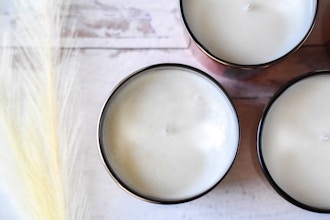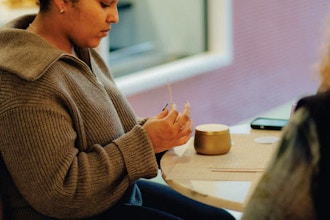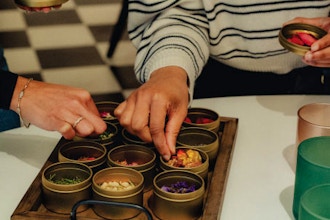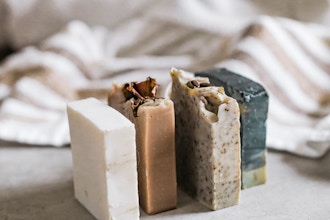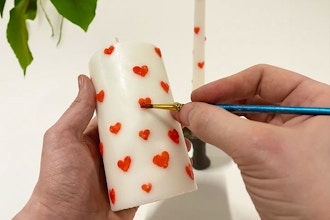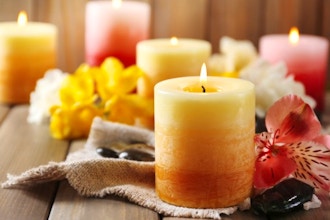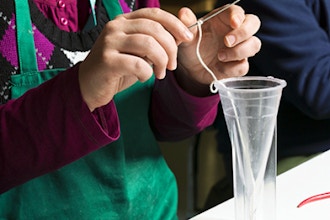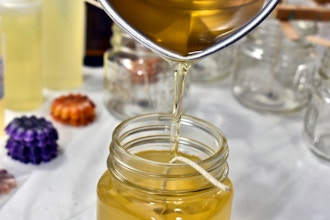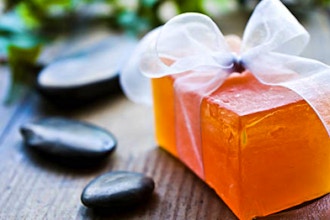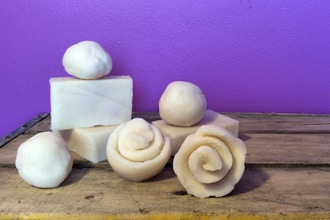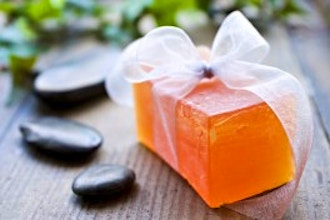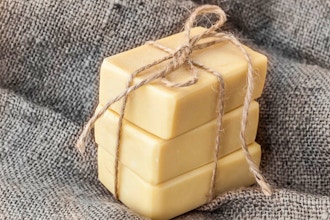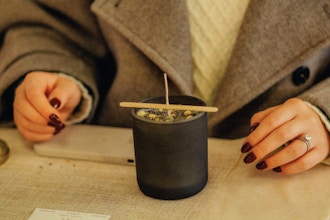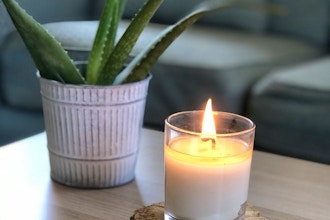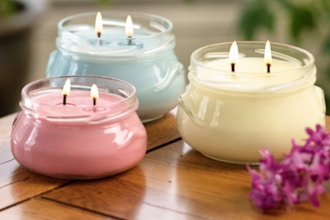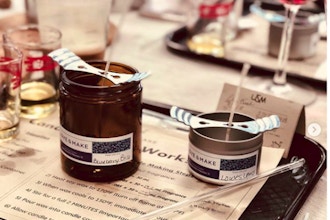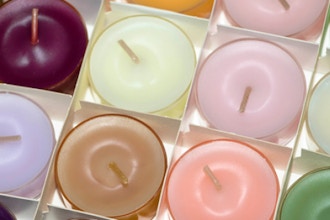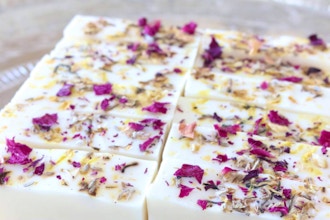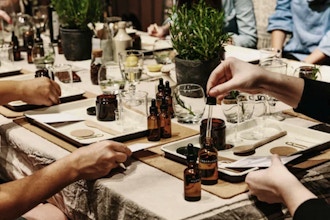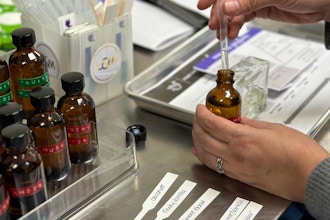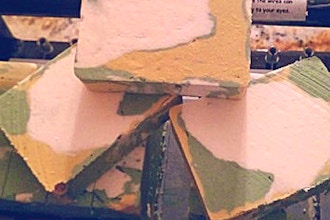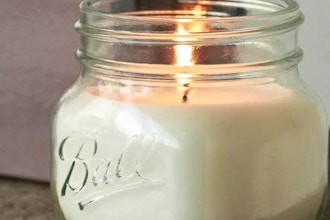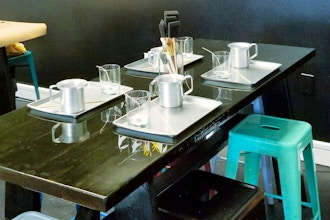Discover the Best Candle Making Classes Near Me
A candle is, simply, a wick encased in wax. This sounds obvious, but maybe isn’t the sort of thing you consciously think about, even if you own and use candles on a regular basis. Since the mid-19th century, when candle making shifted from a household chore done by hand to an industrialized mass market task done by machines, It has never been easier to acquire a candle, and yet fewer people now know what it means to make a candle than in the days when candle making was done by hand.
Before the industrial revolution, cultures across the world made candles for thousands of years. As early as 500 BCE, ancient Romans made dipped candles with tallow, while the ancient Chinese of the Qin Dynasty made their candles out of whale fat. Recently, there’s been an interest in taking the process out of a mass-produced factory setting and back into an artisanal, made-by-hand model.
The methods for making candles by hand have not changed much from those discovered by these earliest candle makers, which makes it a simple matter to pick up the tools and techniques today. The essential materials for candle making are a wick, wax (typically beeswax, plant-based waxes like soy wax, or petroleum-based paraffin wax), and a container to hold the wax. Those looking for ways to express themselves creatively can choose to incorporate dyes to control the color of the candle or fragrance oils to add a pleasant scent. There are a few ways to encase the wick in the wax. The most popular methods include rolling the wick up in a thin sheet of wax, pouring the melted wax into a pre-shaped mold and inserting the wick, or simply dipping the wick into a large container of melted wax.
Why You Should Learn Candle Making
More than just a way to spend free time, candle making is a relaxing, meditative hobby renowned for its stress-relief properties. While it isn’t necessary to add a fragrance to candles, incorporating essential oils or fragrance oils into a candle can be a great way to increase the relaxing aspect of the hobby by introducing an element of aromatherapy. The candle making process provides the personal satisfaction that comes with the pursuit of a hobby, and the product itself can be further used for aromatherapeutic relaxation or for decoration.
While a hobby like candle making is typically taken up for purposes of personal fulfillment, that doesn’t mean that it is a solitary activity. A simple way to extend the hobby outside of a strictly personal circle might be to create a personalized candle as a gift for a friend or family member, sharing the fruits of the hobby with another household. Those more interested in sharing their enthusiasm about the process itself might be interested in tapping into a forum for artisans to connect with one another. Online forums like Reddit allow candle makers across the world to connect with each other to share projects, techniques, and general advice.
5 Ways to Learn Candle Making
Though the tools and methods for candle making are as simple as they were thousands of years ago, there’s more to the process than dropping a wick into some wax and hoping for the best. The best way to master the techniques is to follow the guidance of an experienced instructor, which can be done in a variety of formats. Consider one of the following to learn candle making:
- An in-person class with an expert candle maker is the most comprehensive way of jumping into the hobby. By being onsite with an instructor, you will have access not only to a professional providing guidance at every step of the candle making process, but you’ll also be working in an environment tailor-made for the process, and the materials will likely be provided.
- A live online class can reproduce much of the experience of attending an in-person class. You will likely need to supply your own materials, but you will still have access to an expert instructor who can provide advice in real time and will also form a social network with the other students in the classroom.
- A more self-directed way to learn candle making would be to follow along with a self-paced, on-demand class using online videos or tutorials from a site like YouTube. These are free and accessible to anyone with an internet connection, and are great for learning at your own pace, but don’t allow for any interaction with an instructor who can offer guidance in real time.
- Following a candle making blog is another autonomous way of learning candle making. A simple Google search can return several online blogs that offer step-by-step instructions on how to make a candle. Many of these blogs will include static images of each step in the process, which are useful as visual aides, but may not be quite as clear as seeing the action performed in real time.
- Local candle makers may be willing to share their knowledge. A local craft fair might have a chandler peddling their own wares. Consider checking a local boutique to see if they sell candles from a local source; they may have an artisan profile with information on a local chandler.
In-Person Candle Making Classes
Attending an in-person class ranks as one of the best methods of learning candle making, providing access to someone who can answer questions and provide feedback in real time as well as a classroom full of like-minded candle makers. For both complete novices taking their first foray into candle making and for those looking to pick up some more niche candle making techniques, there are many opportunities to take a local, in-person candle making course in communities across the country.
Those in New York City should consider making the trip to the Upper West Side to check out Back Porch Soap Company. Originally founded as a soap making business in Plymouth, Massachusetts by Marla Bosworth, Back Porch Soap Company has expanded into a natural skincare business featured in publications like The New York Times and The Wall Street Journal.
Back Porch Soap Company hosts a variety of workshops that educate students to make their own natural products, including workshops on how to make natural wax candles. While these candle making classes are all suitable for individuals without prior experience, each one carries a slightly different tone. For a fun and relaxing experience focused on candles for personal use or gift-giving, the Candle Making Pop Up! Experience is a more casual foray into candle making. This 1.5-hour workshop is a hands-on experience where participants have the opportunity to create two of their own personalized coconut wax candles in glass containers. This is a great option for those looking to pursue the hobby for its relaxing properties or who want to use the hobby to share gifts with close friends.
The Candle Making Class offered by Back Porch Soap Company is a slightly more intensive experience catered to those who are a bit more serious about their candle making. This 2.5-hour workshop offers the same hands-on opportunity to customize and create two candles, but also offers some advice for those who want to sell their wares. The content is suitable for newbies who seek a slightly more serious tone, and for practiced candlemakers looking to troubleshoot their techniques or further develop their existing candle lines. Those who enroll in the class will also have access to digital materials that students can view at their own leisure.
For those whose interest in candle making is driven by entrepreneurial desires rather than pursuit of a hobby, Back Porch Soap Company offers an Organic Skincare, Soap and Candle Making Diploma Course that caters to individuals hoping to launch or to grow a business. This “Make Your Own Beauty” certificate program is a series of 5 hands-on workshops intended as a more comprehensive approach to the beauty industry, including workshops on candle making but also on soap making and on skincare products.
Manhattan isn’t the only option for New Yorkers. Cross the East River into Queens to book a class with Atelier Artisane, a business selling hand-made, naturally-sourced candles and offering classes in candle making. Provence native Melanie Rousselet, founder of Atelier Artisane, shares her knowledge in a Natural Scented Candle Making class, a 1.5-hour course on candle making theory with plenty of hands-on practice. This class features a heavy emphasis on the use of natural ingredients, including advice on how to select and source quality ingredients, and the benefits of using such ingredients over cheaper alternatives like paraffin wax. Participants leave the class with two candles, both a scented soy or coconut wax candle and a lotion candle whose melted wax can be used as a skin moisturizer that they’ve made themselves.

